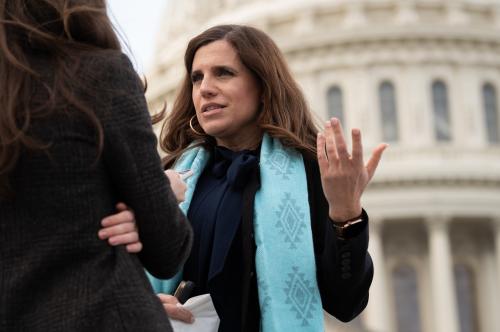Many Americans are following the January 6 committee’s hearings, but few minds are being changed, according to national surveys conducted since the hearings began. Here are five major takeaways from these surveys.
Although the American people see the events of January 6 as significant, they do not consider them to be as transformative as other significant events in recent decades.
According to a Politico/Morning Consult poll, just 40% of Americans report that the January 6 attacks had a major impact on their outlook, compared to 66% for the terrorist attacks on 9/11, 62% for the pandemic, and 52% for the recent spate of mass shootings.
The committee convened to investigate the January 6 attacks enjoys strong but not overwhelming support.
In the surveys on which this article is based, approval of the committee’s work enjoys an edge of 11 to 16 points over disapproval. The ABC/Ipsos poll found that 60% of Americans view the committee’s investigation as “fair and impartial”; 38% disagree.
About 6 in 10 Americans say that they are closely following “news” about the January 6 committee, but only one-third are closely following the committee hearings, and even fewer are watching them, even in part.
Overall, the share of Americans paying attention to the committee has not budged since early April, but the share of Democrats has risen significantly while the share of Republicans has declined.
Democrats make up a strong majority of the audience for the live hearings.
Yahoo/YouGov found that 70% of those who have watched approve of Joe Biden’s performance as president, and the same percentage intend to vote for Democratic candidates in the midterm elections.
The composition of the audience for future hearings is likely to be even more Democratic. The Economist/YouGov survey found that 51% of Democrats intend to watch the forthcoming hearings, compared to only 9% of Republicans. A recent Quinnipiac poll helps explain why: 64% of Democrats say that they have learned new information from the hearings thus far, but only 14% of Republicans agree.
As yet, there is no evidence that the work of the January 6 committee is changing many minds.
In a Quinnipiac survey released on January 12, 43% of Americans believed that Donald Trump bears “a lot” of responsibility for the attack on the Capitol. In the comparable survey released on June 22, 41% affirmed this view. And on the core issue of whether President Trump committed a “crime,” the country remains as closely divided as ever. In April, Quinnipiac found, 46% of Americans said they he had and 47% that he hadn’t. As of June 22, the split was almost identical—46% to 48%. A decision to prosecute the former president for his role in the attack would probably intensify this division.
On the other hand, the Economist/YouGov survey found, 79% of Americans now believe that Donald Trump was involved in a wide-ranging effort to overturn the results of the 2020 election, a belief shared by 49% of Republicans and an equal share of those who voted for him in 2020. At the end of the day, the former president may stand convicted in the court of public opinion if not in a court of law. The hearings could intensify the nascent sentiment within the Republican Party to find a replacement for Trump who shares his views but not his defects.







Commentary
What are Americans thinking about the January 6 hearings?
June 23, 2022